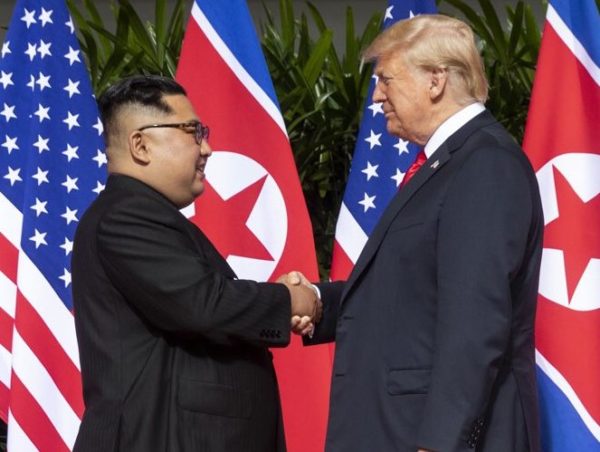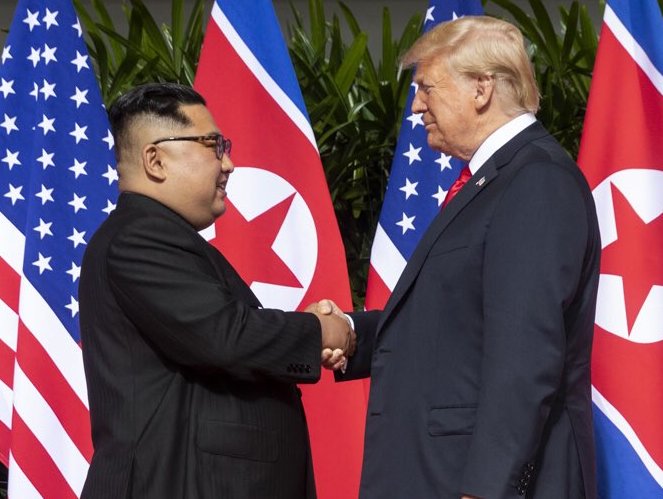North Korea has launched a scathing denunciation of President Donald Trump’s proposed “Golden Dome” missile defense system, warning that the ambitious space-based initiative risks sparking an “outer space nuclear war” and destabilizing global security. The fiery rhetoric, issued by Pyongyang’s foreign ministry via state media on Tuesday, adds to a growing chorus of international concern, particularly from rivals like China and Russia.
Trump’s “Golden Dome” plan, unveiled last week, aims to create a multi-layered defense network capable of intercepting missiles at various stages, including those launched from “other sides of the world and even from space.” The former President touted it as a revolutionary system that would grant the U.S. unparalleled protection against aerial threats.
However, North Korea views the plan as a dangerous provocation. In a statement carried by the official Korean Central News Agency (KCNA), the North Korean foreign ministry’s Institute for American Studies slammed the “Golden Dome” as a “very dangerous ‘threatening initiative’ aimed at threatening the strategic security of the nuclear weapons states.”
Pyongyang accused Washington of being “hell-bent on the moves to militarize outer space” and warned that the U.S. plan is “the root cause of sparking off a global nuclear and space arms race by stimulating the security concerns of nuclear weapons states and turning … outer space into a potential nuclear war field.” The statement further branded the initiative as a “typical product of ‘America first,’ the height of self-righteousness, arrogance, high-handed and arbitrary practice.”

The criticism from North Korea mirrors concerns previously voiced by China and, to a lesser extent, Russia. Beijing has expressed “serious concern,” with a Chinese foreign ministry spokesperson stating last week that the project “will heighten the risk of turning space into a war zone and creating a space arms race, and shake the international security and arms control system.” While Russia initially condemned the idea as destabilizing, the Kremlin later softened its tone, calling it a “sovereign matter” for the U.S. but noting the need for consultations.
Analysts suggest that Pyongyang’s strong reaction indicates a perceived threat to the effectiveness of its own burgeoning nuclear arsenal, including its intercontinental ballistic missiles (ICBMs). Hong Min, a senior analyst at the Korea Institute for National Unification, told AFP news agency that if the U.S. completes its new missile defense program, “the North will be forced to develop alternative means to counter or penetrate it.”
Despite Trump’s assertive timeline of having the system operational by 2029, experts warn that the “Golden Dome” initiative faces significant technical and political challenges, as well as an estimated cost that could vastly exceed the initial $175 billion figure cited by Trump. The U.S. Congressional Budget Office has estimated the space-based components alone could cost over $500 billion within two decades.
As the international community grapples with the implications of an increasingly militarized outer space, North Korea’s latest condemnation highlights the growing unease among nations that perceive such defensive systems as upsetting the delicate balance of strategic stability and potentially ushering in a new, dangerous era of arms competition.
